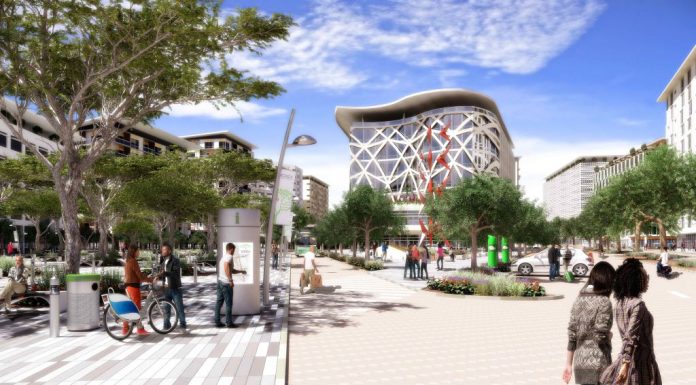Envac is to install Africa’s first ever pneumatic waste collection system in Kenya.
Envac Iberia, which specialises in the development, installation and operation of pneumatic waste collection systems (PWCS), will install Africa’s first ever system after signing a contract to install its technology in the new Konza Technopolis, Kenya.
Work on the €7.3m project is being supported by Italian construction firm Grupo ICM and will begin this year with completion expected in 2022. The Konza Technopolis development is one of the Kenyan government’s flagship projects and forms part of Kenya Vision 2030, an initiative that aims to transform Kenya into a place that provides a high quality of life and a clean and secure environment for all its citizens by 2030.
Envac Iberia’s PWCS will serve a population of 28,000 inhabitants and collect 40 tons of solid waste each day across four waste fractions. The installation will include two terminal stations and a public, underground pipe network that will connect 101 plots. A total of 900 Envac waste inlets, which replace traditional bins, are planned to be installed inside private buildings as part of the new city’s first phase.
John Tanui, chief executive officer at Konza Technopolis Development Authority, said: “At Konza Technopolis we are making progress towards achieving our vision to build a sustainable, world-class technology hub, and a major economic driver for the country that includes a vibrant mix of businesses, workers, residents and urban amenities. At the pace at which ICM is implementing the infrastructure component of the city we remain optimistic that upon completion, we shall attract investors and investments, and that it will position us as a global hub for science, technology and innovation.”
Carlos Bernad, managing director at Envac Iberia, commented: “Africa was the only continent without an Envac pneumatic system until today. With this project, Kenya has clearly shown its commitment to building sustainable cities and incorporating the most advanced technologies. The new system will allow the city to avoid the inconvenience of traditional waste collection methods including the ongoing presence of waste collection trucks and overfull litterbins lining the streets.
“Instead, a completely underground pipe network will collect and transport all of the waste produced in the area to a terminal in a process that’s handled underground and is completely sealed. In doing this, Kenya is starting to view waste just like any other basic part of the urban infrastructure such as water, electricity and gas.”


















